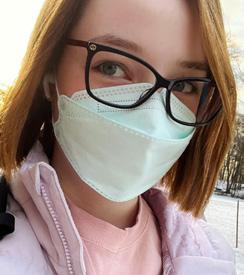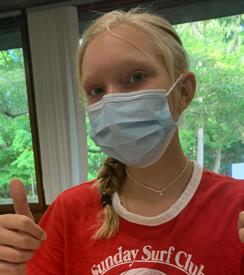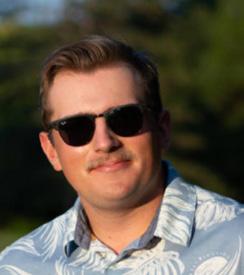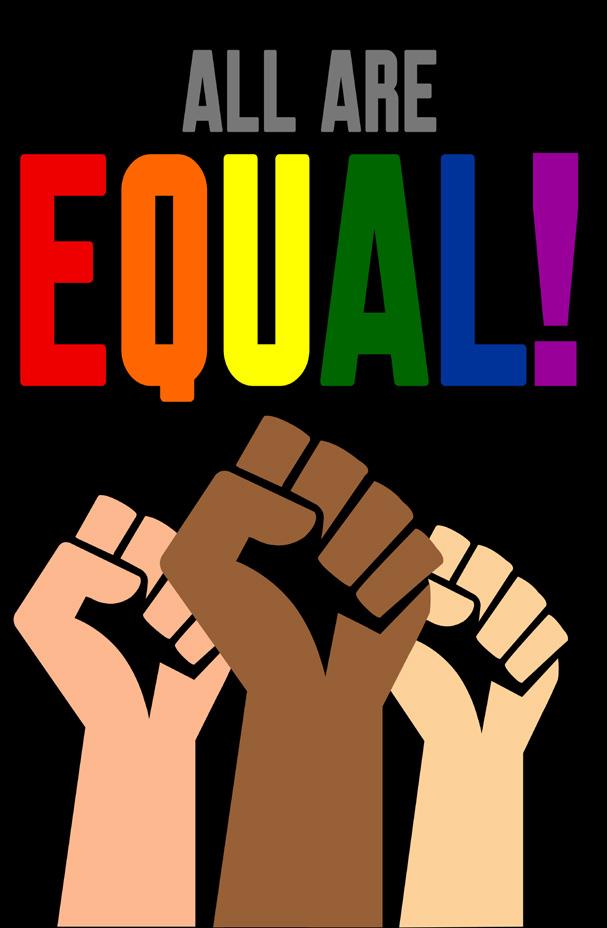
3 minute read
Why speak up? A STUDENT PERSPECTIVE ON RESTORATIVE JUSTICE


Advertisement
On February 16th, Allendale Columbia will have its very first studentled forum. The event will encourage student discussions around belonging, community, equity, and overall feedback on our school culture. The forum, Mr. Schwartz explains, is structured around the climate survey that was sent out to students. The climate survey collected student responses on questions related to relationships, connections, equity, diversity, representation, and trust.
The purpose of the forum, Mr. Schwartz elaborates, is to expand on the concepts that were presented in the climate survey data, giving students an opportunity to, “share helpful feedback, engage in discussion, and [provide students] with a space to expand on their thinking.”
Students will lead the forum which will “improve group dynamics, [foster] leadership, and lead to impactful conversations”
- Mr. Knapp
“Students seek feedback from each other…discussions led by adults or [those in authoritative positions] can [cause students] to feel uncomfortable; this was one big reason we decided to make the ‘Speak Up Forum’ a student-led event,” Dr. Luce shares.
Upcoming Restorative Practice Training
BY JAMES THORNBURG
According to the International Institute for Restorative Practices (IIRP), restorative practices are a “social science that studies how to strengthen relationships between individuals and within communities.” Restorative practices offer schools a unique way to format their justice system. Restorative justice focuses on resolving conflict, repairing harm, and healing relationships unlike the punitive system, used by most schools, which focuses on pushing the offending party. While punitive justice is usually handled between the offender and the legal system in which they reside, restorative justice brings the offender and the victim together in order to discuss the matter and work through it together.
On the 16th of February, Allendale Columbia is holding an introductory workshop on restorative practices led by Kyle Skovira, an Equity Education Specialist from BOCES. Kyle has worked in restorative practices for several years, is an interdisciplinary artist, and appears to

WHY SPEAK UP? continued from page 1
A variety of different sessions will structure the day. AC Summer Leap Director, Indy Maring, will speak on finding one’s voice, and how and when to use it. Following their segment, students will break off into ten groups, each with one student leader, and “discussions will be held based upon guided questions.” Questions can take the form such as: “What happens when you are engaged in learning? What actions can faculty take? And what actions can students take?” Towards the end of the discussion, student leaders will, “provide space for open conversation in relation to ideas and thoughts around the issues present within our community,” Dr. Luce tells The Howler
The remaining half of the day will be restorative practice training: how we want it to look, how it can be implemented, and how to move forward. I have overheard many students describe our current system as unstructured and unorganized. I asked Dr. Luce to share her thoughts on our justice system. In response, she explained that the ‘Speak Up Forum’ will be a place to discuss the issues surrounding our system so we can develop one that is well organized. “I feel as of right now that we do not have a [restorative justice] system, but we want to build that system, so it’s currently a work in progress,” she describes.
Allendale Columbia is partnering with the Common Ground Collaborative (GCG), a non-profit organization working with schools to create a safe learning environment. Kevin Bartlett from the CGC will be working with Allendale Columbia school to “develop a shared definition of learning at AC, support curriculum alignment and assessment, identify how our values align with our definition of learning and teaching practices, and discuss specific teaching practices that focus on inquiry and culturally responsive pedagogy.” I think we can all agree with Dr. Luce’s wise words, “the majority of our community is students, so it is important their voices are heard.” •
A STUDENT PERSPECTIVE continued from page 1 have an interest in meditation. This event will not be Kyle’s first time partnering with AC. Back in 2019, Kyle worked alongside students from both School #17 and Allendale Columbia to create a TEDTalk on implicit bias.
When I spoke to Mr. Schwartz, head of Upper School, about the upcoming restorative practice training, he said that the training is aimed at helping students understand the process of restorative justice and how it can help better the school. His hope for this workshop is to increase student engagement in restorative practices. Coach Lewis, a Student Support Team member, hopes that this training will “give students the tools to solve problems on their own.” Schwartz told me that he understands that the student impression on restorative justice is very negative.
Schwartz is not far off as the current opinion of restorative practice in the student body is abysmal. When I asked students what their opinion on our current justice system was, most of them scoffed or laughed at me followed by the question “what justice system?” One 11th grade student went as far as to say that restorative justice is, “no justice at all.” In addition, two 12th grade students I interviewed were of the opinion that, “it [restorative justice] does nothing about problems,” and that ACs use of restorative justice is “performative.”
While AC’s use of restorative justice may have been unsuccessful in the past, this workshop could be a step in the right direction. Perhaps AC can repair student opinions of restorative justice with this training and solidify the justice system for the future. •











